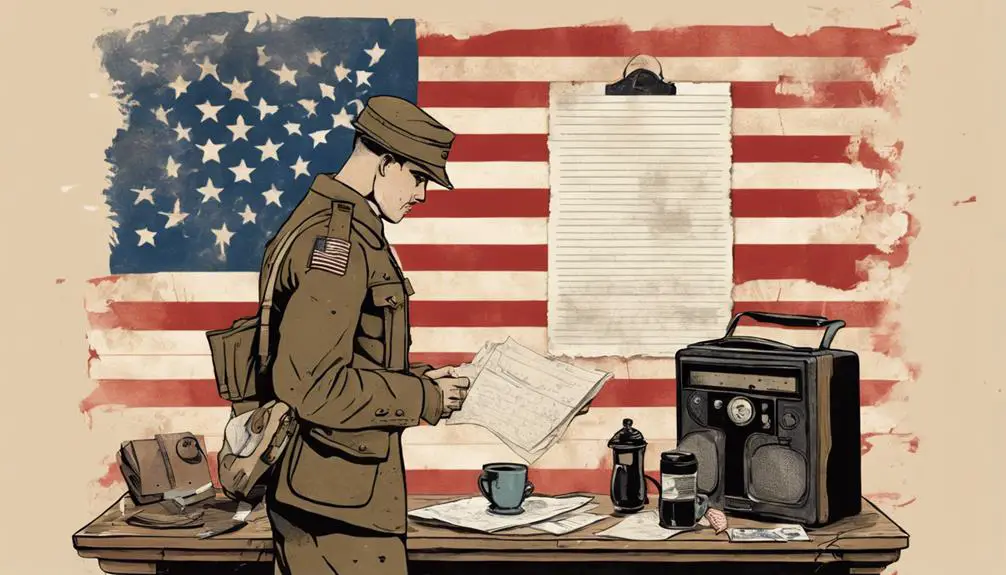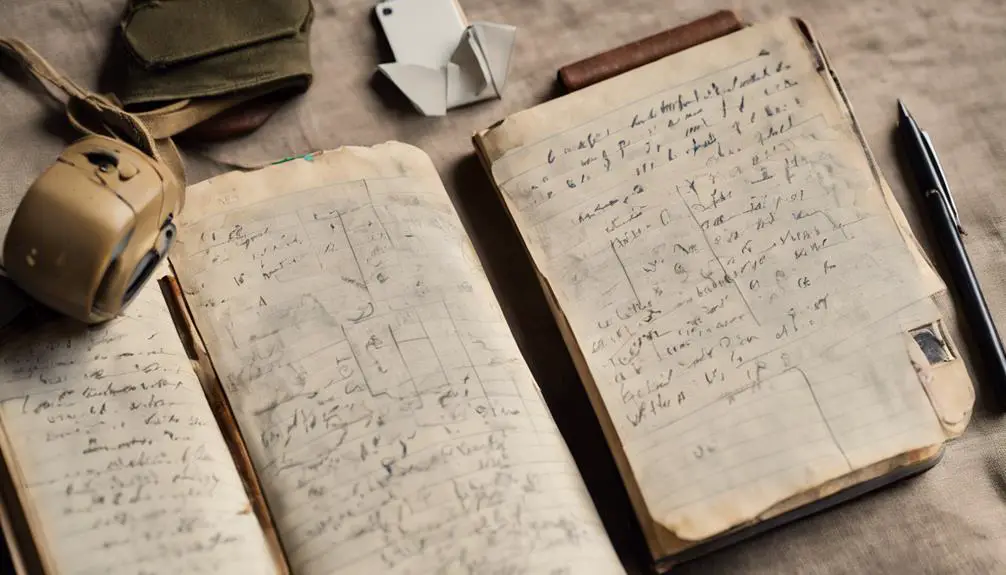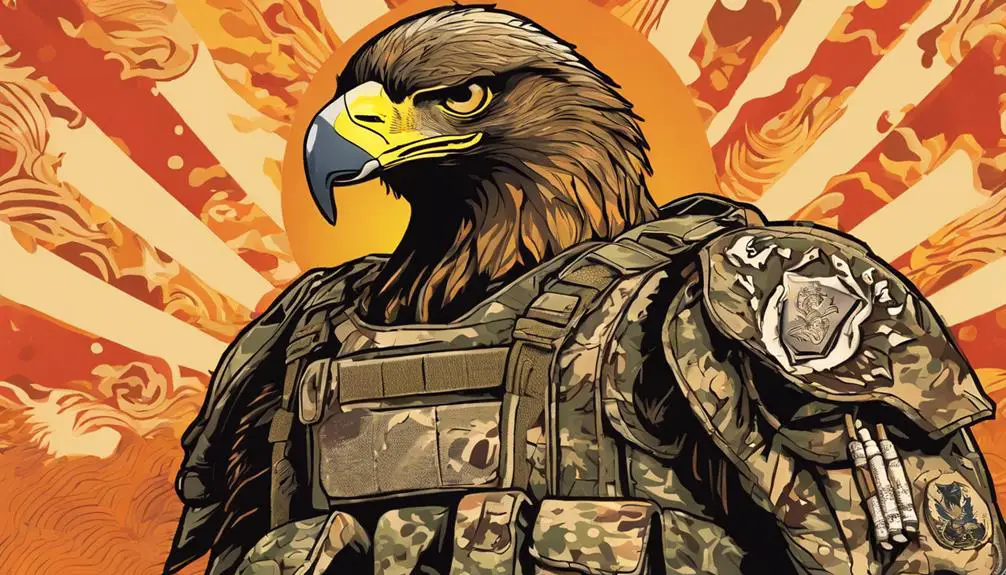You're about to explore the world of affirmative military slang, which emerged in the trenches of France during World War I. This unique language has become an integral part of military culture and communication, facilitating efficient radio transmission. You'll recognize phrases like "affirmative," "roger that," "wilco," and "copy that," which are used to acknowledge and express understanding. But context is key – the same phrase can convey camaraderie or aggression depending on the setting. As you explore this language further, you'll uncover the significance of affirmative responses in high-stress situations and how they've evolved over time to reflect changing warfare dynamics.
Origins of Military Affirmatives

As you explore the world of military communication, you'll discover that affirmative slang has its roots in the early 20th century, emerging as a response to the need for efficient and secure radio transmission during World War I. The historical roots of affirmative slang can be traced back to the trenches of France, where soldiers relied on radios to convey important information.
The need for brevity and clarity led to the development of a unique language, which would later become an integral part of military culture.
Cultural influences also played a significant role in shaping affirmative slang. The influx of American soldiers during World War I introduced American English phrases, which merged with British English to create a distinct military dialect. This blend of languages and cultural nuances gave birth to a unique set of affirmatives, such as 'roger' and 'affirm,' which became synonymous with military communication.
The evolution of affirmative slang is a reflection to the adaptability and creativity of soldiers, who, in the face of adversity, developed a language that would become an essential tool in their arsenal.
Common Affirmative Phrases Used
When communicating critical information, you'll frequently hear military personnel using affirmative phrases like 'roger that' and 'affirmative' to acknowledge receipt and understanding of messages. These phrases have become an integral part of military culture, conveying a sense of confidence and clarity in high-pressure situations.
Here are some common affirmative phrases used in military communication:
- Affirmative: A simple 'yes' or acknowledgement of a message or instruction.
- Roger that: A more casual way of saying 'affirmative,' often used in informal settings.
- Wilco: Short for 'will comply,' used to confirm receipt of an order or instruction.
- Copy that: Another way of saying 'I understand,' often used in radio communications.
These phrases have cultural significance, as they demonstrate a sense of discipline and attention to detail that's central to military values. Additionally, they've everyday applications in civilian life, where clear communication is essential in high-stress environments, such as emergency response or crisis management.
Contextualizing Affirmative Responses

You need to take into account the context in which affirmative responses are used to guarantee effective communication, as the same phrase can have different meanings depending on the situation and the person giving the response. For instance, a phrase like 'Roger that' might be used to acknowledge an order in a combat situation, but in a casual setting, it might come across as insincere or mocking. Understanding the cultural implications of these phrases is vital, as they can be perceived differently by people from diverse backgrounds.
In addition, social connotations play a significant role in shaping the meaning of affirmative responses. For example, a phrase like 'Hooah' might be seen as a symbol of camaraderie and teamwork in a military setting, but in a civilian context, it might be viewed as aggressive or confrontational.
Importance in High-Stress Situations
In high-stress situations, where every second counts, affirmative responses like 'Roger that' or 'Wilco' become essential in facilitating swift and accurate communication, ensuring that critical information is acknowledged and acted upon promptly. You, as a team member, rely on these affirmations to confirm understanding and proceed with confidence.
This clarity is pivotal in crisis situations, where miscommunication can have devastating consequences.
Here are some key aspects of affirmative military slang in high-stress situations:
- Crisis Clarity: Affirmative responses provide instant confirmation, reducing confusion and eliminating doubts.
- Stress Solidarity: Shared understanding fosters a sense of unity, promoting cohesive teamwork under pressure.
- Swift Execution: Prompt affirmations enable rapid decision-making, ensuring timely action in critical situations.
- Lifesaving Efficiency: Accurate communication saves lives by preventing misunderstandings and ensuring correct procedures.
Evolution of Military Slang

Military slang has adapted to the changing nature of warfare, with terms and phrases evolving to reflect advancements in technology, shifting global politics, and the diverse backgrounds of service members.
As you explore the world of military slang, you'll notice that it's not static; it's a dynamic language that's shaped by cultural influences and historical roots. You'll find that military slang often borrows from the languages and dialects of the regions where troops are deployed.
For instance, during World War II, American GIs adopted French phrases like 'cumshaw' (meaning 'free' or 'gratis') from their French allies. Similarly, during the Vietnam War, soldiers picked up Vietnamese phrases like 'di di mau' (meaning 'let's go' or 'hurry up').
You'll also notice that military slang draws from African American Vernacular English (AAVE), reflecting the significant contributions of African American service members to the military. As you investigate the evolution of military slang, you'll discover how it's been shaped by the diverse experiences and cultural backgrounds of those who serve.
Frequently Asked Questions
Can Affirmative Slang Be Used in Formal Military Documents?
When writing formal military documents, you should maintain a professional tone. You'll want to avoid using slang, including affirmative slang, as it can undermine the document's formality. Formality standards dictate that official documents should be written in a clear, concise manner, free from colloquialisms.
Using affirmative slang can compromise the document's credibility and undermine its authority. Instead, focus on using precise language that conveys your message effectively.
Are Affirmative Phrases Used by All Military Branches Equally?
You might assume that all military branches use affirmative phrases equally, but that's not the case. In reality, each branch has its own nuances.
Branch variations and service differences lead to distinct communication styles. For instance, the Army tends to be more formal, while the Navy is known for its concise language.
Understanding these differences is important for effective communication across branches.
Do Affirmative Responses Vary Across Different Military Ranks?
You might assume that affirmative responses are uniform across the military, but that's not entirely true. In reality, rank dynamics play a significant role.
Officer nuances, in particular, can affect how affirmatives are used. While junior enlisted personnel tend to use simple 'yes, sir/ma'am,' higher-ranking officers often employ more nuanced responses, such as 'affirmative, sir' or 'roger that.'
Can Civilians Use Military Affirmative Slang in Daily Conversations?
Are you worried about sounding too formal in daily conversations?
When it comes to using military affirmative slang, you might wonder if civilians can adopt it in casual conversations.
The answer is, it's not about the slang itself, but about social norms.
Casual adoption of military lingo can come across as forced or pretentious if not used naturally.
Stick to what feels authentic, and you'll avoid raising eyebrows.
Are Affirmative Phrases Used in Military Communication With Allies?
When communicating with allies, you utilize standardized radio protocols to guarantee clear understanding.
In high-stakes situations, coded messages are employed to uphold secrecy.
You depend on established procedures to convey critical information, avoiding misunderstandings that could jeopardize missions.
Conclusion
In the heat of battle, clear communication is key. That's why affirmative military slang is more than just a quirk – it's a life-saving measure.
When every second counts, a simple 'Roger that' or 'Hooah' can mean the difference between life and death. By using these phrases, soldiers can swiftly confirm orders, convey confidence, and boost morale.
In high-stress situations, this lingo is an essential tool that helps troops stay focused, motivated, and alive.







